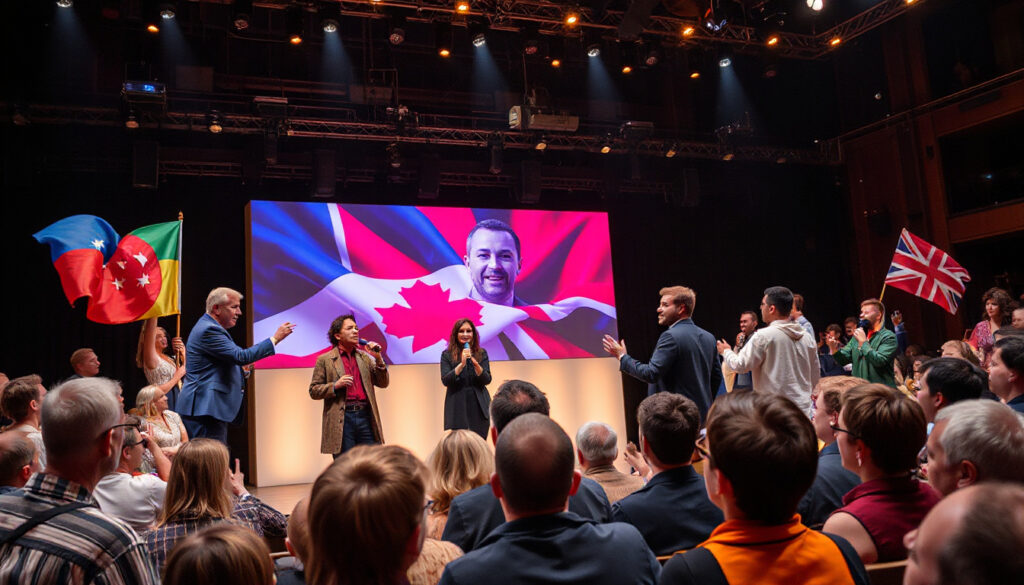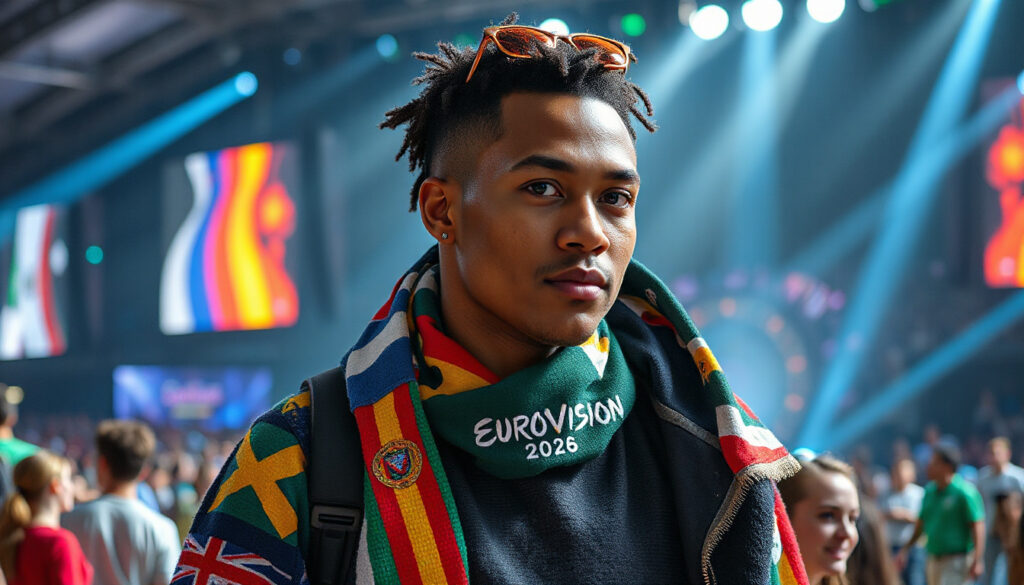Every year, Eurovision brings together a variety of musical acts from many nations. The question sparks strong debate: Should contestants sing in English or in their home languages? With Eurovision 2026 set in Austria, fans and artists now talk more about how language affects identity, access, and success.

A Rise in Native Languages at Eurovision
Eurovision has changed a lot since the late 1990s. In 1999, when the rule on language was removed, many countries switched to mostly English lyrics. English made songs easy to share with many. Still, the trend shifts now.
At Eurovision 2025, artists used 20 different languages. More than half chose to use their native tongues. These languages included not only French and Spanish but also ones like Albanian (Gheg dialect), Lithuanian, and Montenegrin.
Singing in a native language can show deep feelings and cultural pride. It lets listeners hear the song’s own rhythm and sound. This change in language use shows Europe’s rich mix of cultures and tells us each language has its own strength and beauty.
Highlights of Language Variety:
- Armenian and Georgian songs that show unique melodic flow.
- Icelandic and Finnish acts that bring Nordic folklore.
- Ukrainian and Serbian pieces that share history and strong messages.
The Case for English: The Common Tongue of Eurovision
English still has a strong place even as native languages grow. Many see English as the safe choice to win votes across Europe. English lyrics make a song easier to grasp for new listeners, which can help a tune stick in memory and feel strong across borders.
Since 1999, most Eurovision winners have sung in English. Acts from Sweden, the UK, and Ireland prove this point. Songs such as “Euphoria” (Sweden 2012) and “Arcade” (Netherlands 2019) reached many ears with clear English words.
The key points for English include:
- A wider reach for listeners
- Familiar text for juries and viewers across countries
- A boost for commercial success in the music scene
The Heart and Identity Found in Native Tongues
Language goes beyond mere words; it builds personal and national identity. Singing in a native tongue ties artists to their roots and community. This style shows honesty and pride in a performance.
Many fans state that native language songs carry a charm that goes past simple words. Even if listeners do not understand every word, they can sense the emotion in the sounds, rhythm, and accents.
For some countries where the language is not widely spoken, Eurovision gives a key chance to shine a light on their own culture on a great stage. This mix of languages helps keep the diversity of speech alive in our world.
What Eurovision 2026 Could Mean for Language Choices
Austria, the host for Eurovision 2026, adds a new twist. Austria has a mix of German and English in past contests, which mirrors its unique culture and place in Europe. Based on current trends and online chats, the contest might now see more artists who return to their language roots or mix their native words with English.
Key points for the artists in 2026 include:
- Finding a balance between staying true to themselves and speaking to a wide crowd
- Deciding if songs with two languages will draw more attention
- Knowing that language carries deep meaning for national pride in a global contest
The Ongoing Debate Among Fans and Artists
The fight over language use is strong in Eurovision’s fan circles. Some want to bring back a rule that makes all contestants sing in their native tongue. Others enjoy the clear benefits of English and the freedom to sing any language.
The main question stays: Should Eurovision keep its focus on clear language with English, or open up to the full range of European languages? Many see a chance for both freedom and a rich mix of cultures.
What This Means for Eurovision Fans and Aspiring Artists
If you are an artist aiming for Eurovision 2026:
- Think about how your choice of language fits your song’s message.
- Use your native words to show your cultural roots.
- Keep in mind that English can bring reach, but it is not the only way to win.
If you are a fan watching the contest:
- Enjoy the mix of voices and languages as more than just music.
- Notice how language forms the song’s mood and cultural feel.
- Join the talk with an open view on all the ways artists express themselves.
Next Steps: Follow the Language Journey Towards Eurovision 2026
Watch how nations choose their language in their pre-shows. See how some songs mix native words with English to touch more listeners. Stay in touch with Eurovision groups online where the debate on language keeps growing.
Eurovision is more than a contest. It is a show of identity, culture, and unity that comes alive in many languages. For fans and artists alike, this debate means each contest will bring new and lively sounds from every corner.







